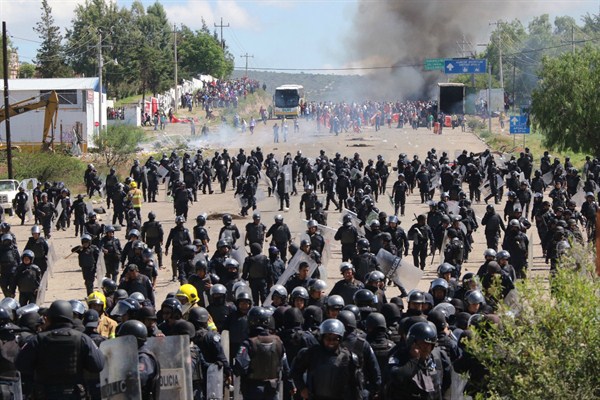Two years ago, the state of Michoacan on the southwestern coast of Mexico saw the rise of so-called self-defense groups. These were heterogeneous groups comprised of a mix of locals genuinely exasperated with the authorities’ inability to protect them from organized crime and cells of criminal organizations rivaling the state’s predominant drug cartel, the Knights Templar.
Much has changed with regard to self-defense groups since then. In early 2014, federal forces took over security of large parts of Michoacan as the state government had become overwhelmed and largely infiltrated by organized crime. After tense negotiations with the federal government, self-defense groups were partially dissolved and integrated into local police forces. Others that were less cooperative with the government were imprisoned, often for violating Mexican guns laws. Yet another faction simply disbanded amid accusations they had been working for the Jalisco New Generation Cartel, a rival to the Knights Templar that has become one of the country’s most powerful drug-trafficking organizations.
The federal government is no longer in charge of state security in Michoacan, which now has a new governor, Silvano Aureoles, from the left-wing Party of the Democratic Revolution, or PRD. But the overall environment remains as problematic as when the self-defense groups first stepped into the limelight. Organized crime continues to be a significant problem in Michoacan, where homicide levels are up 70 percent from last year and at a 22-year high, according to the Executive Secretariat of the National System for Public Security. But the more recent governance challenge is political.

